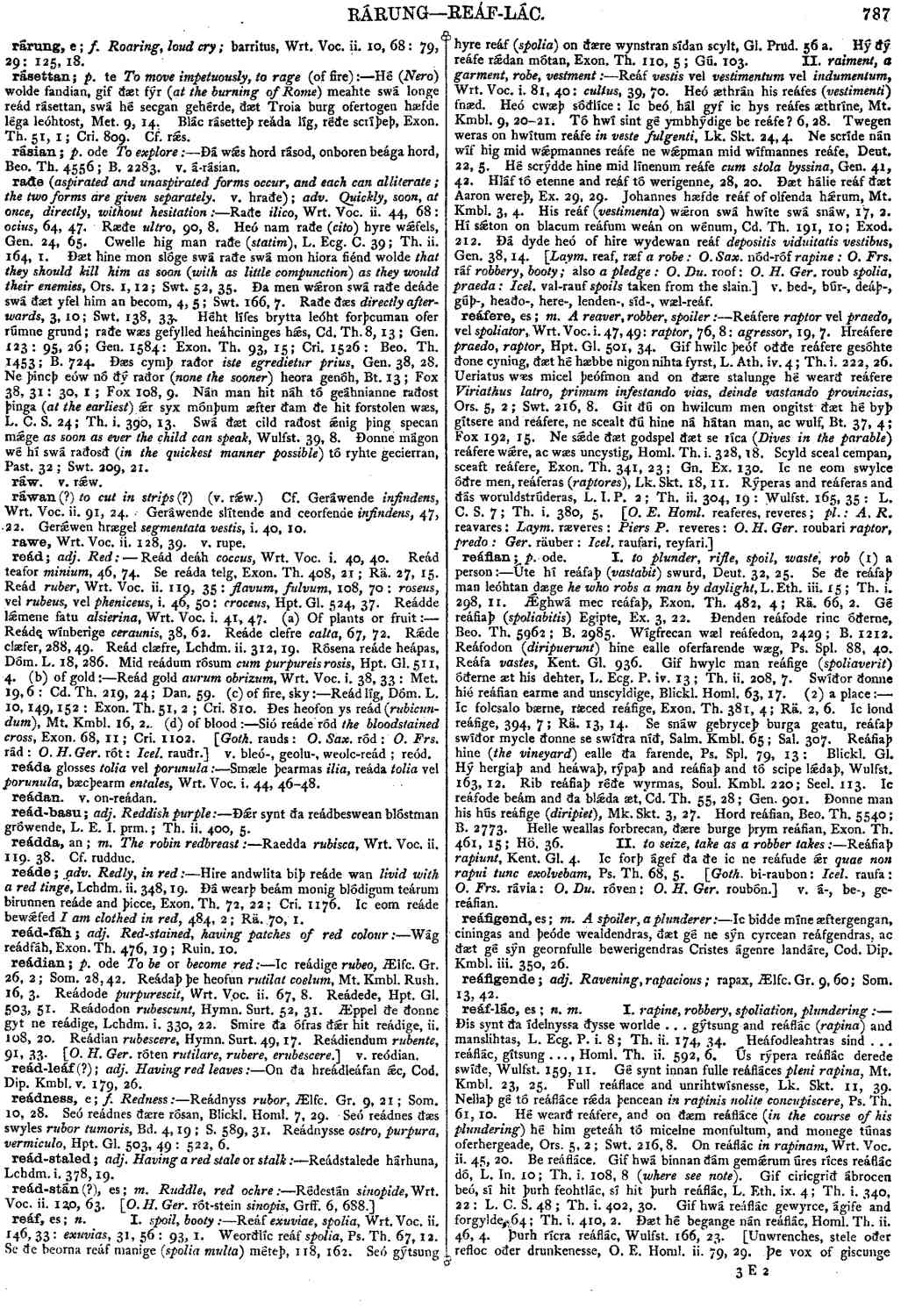raðe
- adverb
-
Raðe ilico, Wrt. Voc. ii. 44, 68 :
ocius,
- 64, 47.
-
Ræðe
ultro,
- 90, 8.
-
Heó nam raðe (
cito
) hyre wǽfels,- Gen. 24, 65.
-
Cwelle hig man raðe (
statim
),- L. Ecg. C. 39; Th. ii. 164, 1.
-
Ðæt hine mon slóge swá raðe swá mon hiora fiénd wolde
that they should kill him as soon (with as little compunction) as they would their enemies,
- Ors. 1, 12; Swt. 52, 35.
-
Ða men wǽron swá raðe deáde swá ðæt yfel him an becom,
- 4, 5; Swt. 166, 7.
-
Raðe ðæs
directly afterwards,
- 3, 10; Swt. 138, 33.
-
Héht lífes brytta leóht forþcuman ofer rúmne grund; raðe wæs gefylled heáhcininges hǽs,
- Cd. Th. 8, 13; Gen. 123 : 95, 26; Gen. 1584 : Exon. Th. 93, 15; Cri. 1526 : Beo. Th. 1453; B. 724.
-
Ðæs cymþ raðor
iste egredietur prius,
- Gen. 38, 28.
-
Ne þincþ eów nó ðý raðor (
none the sooner
) heora genóh,- Bt. 13; Fox 38, 31 : 30, 1; Fox 108, 9.
-
Nán man hit náh tó geáhnianne raðost þinga (
at the earliest
), ǽr syx mónþum æfter ðam ðe hit forstolen wæs,- L. C. S. 24; Th. i. 390, 13.
-
Swá ðæt cild raðost ǽnig þing specan mǽge
as soon as ever the child can speak,
- Wulfst. 39, 8.
-
Ðonne mágon wé hí swá raðosð (
in the quickest manner possible
) tó ryhte gecierran,- Past. 32; Swt. 209, 21.
Bosworth, Joseph. “raðe.” In An Anglo-Saxon Dictionary Online, edited by Thomas Northcote Toller, Christ Sean, and Ondřej Tichy. Prague: Faculty of Arts, Charles University, 2014. https://bosworthtoller.com/25587.
Checked: 0